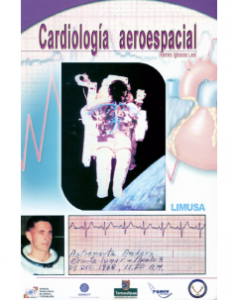Aerospace cardiology
Synopsis
In this book we analyze the most outstanding aspects of the behavior of the heart and blood circulation during aeronautical and space activity.
The knowledge generated in this area of ??medicine is abundant and becomes increasingly important because air transportation increases continuously. At present, around 2 billion people per year are transported by plane. In Mexico, air transport transports approximately 50 million passengers; Only between 24 and 25 million passengers are received at the airport in Mexico City and these figures increase year after year. On the other hand. More than half of the population of Mexico resides in the Central Plateau and in other places of medium altitude (between 1500 and 3000 meters high). In the Andean countries there are important populations settled in high altitude areas that impose a physiology and cardiovascular pathology on their inhabitants.
Residents of low-lying areas who move to places of medium altitude or high altitude experience physiological changes that at some point can compromise their health and even life: they can suffer very serious pathological conditions such as acute mountain disease or acute edema lung of the altitude. For healthy people, the flight in theory should not present any problem, but some patients, particularly the cardiorespiratory system can be seriously affected by the flight conditions.
Two-thirds of the medical emergencies that occurred during the flight, as well as most deaths on board commercial aircraft and unscheduled landings are due to cardiovascular problems. Most compensated cardiorespiratory sufferers can travel by plane or move to medium altitude regions, but in general require specific indications and care.



